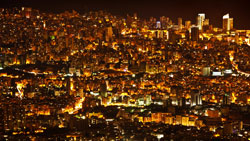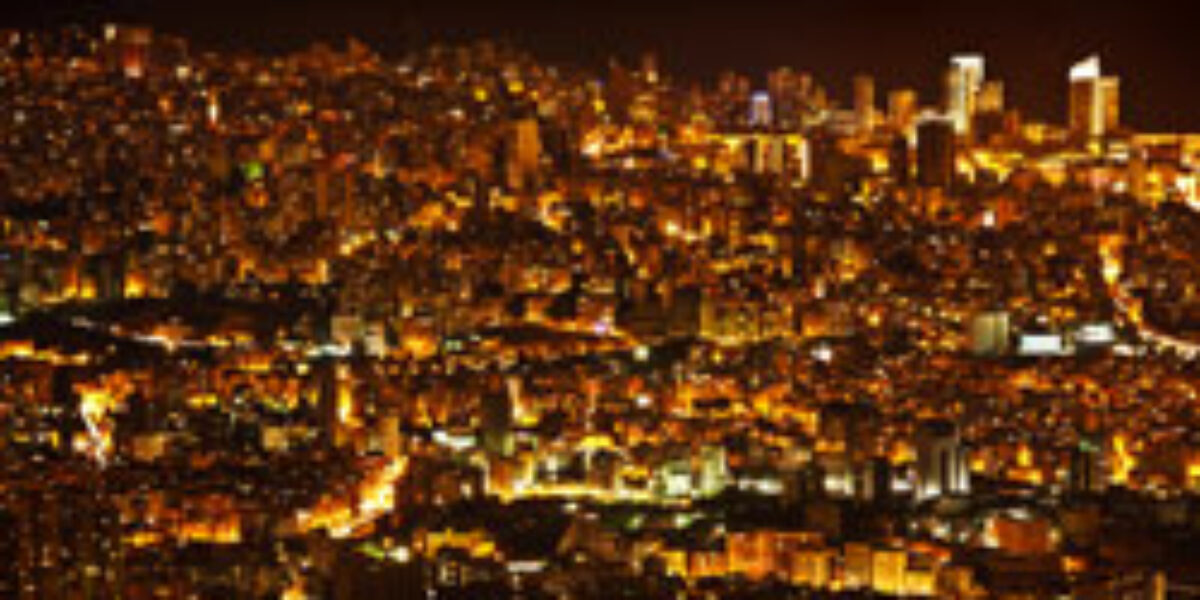Lebanon – Bursting With Energy
 Lebanon, a country that geographically unites Europe, Asia and Africa, is a lively, international business hub with a globally renowned reputation. As one of the most stable Arab countries, with an unwavering commitment to ensure that the private sector drives the economy, ‘the Switzerland of the Middle East’, offers access to other continents, numerous countries, and millions of customers.
Lebanon, a country that geographically unites Europe, Asia and Africa, is a lively, international business hub with a globally renowned reputation. As one of the most stable Arab countries, with an unwavering commitment to ensure that the private sector drives the economy, ‘the Switzerland of the Middle East’, offers access to other continents, numerous countries, and millions of customers.
With its hands-on attitude to business, countless commercial opportunities and recent reforms that favour foreign investment, many industries have huge growth potential. Established commercial relations with countries near and far increase the appeal of this hospitable country, with co-operative trade between the EU and Lebanon displaying an estimated 12% yearly growth rate in recent years. This new-found optimism is thanks to the absence of political upheaval and an increase in foreign investment across a variety of sectors. Numerous service industries,including banking, commerce and tourism, are making huge strides in the Lebanese economy, with the service sector responsible for over 65% of GDP.
Lebanon’s banks are amongst the world’s most secure, and in recent years they have reached an even higher level of success and received global acclaim. The enviable status of the financial sector is thanks to its on-going collaboration with international institutions and the subsequent employment of anti-money laundering actions, ensuring corruption is well and truly a thing of the past. Global media has applauded Lebanon for recording growth since the recession of 2008, something only a handful of countries have managed to do. The tourism and travel industry is expected to have an increasingly favourable impact on the Lebanese economy, forecasting $4.1 billion in 2013, an estimated 1.8% rise compared to the figures of 2012. Lebanon is well aware of the steps that need to be taken, and everybody from the Chambers of Commerce to the various political factions all agree that Lebanon must stand together unanimously to ensure its reputation as the Middle East’s most desirable tourism destination is not compromised.
On the subject of politics, it is interesting to note that the recent resignation of Lebanon’s Prime Minister has had no negative impact on the economy, highlighting Lebanon’s ability to truly weather any kind of storm. It is precisely this resilience and versatility which ensures Lebanon will continue to remain ripe for investment whatever the weather. The construction, agricultural and renewable energy sectors offer huge growth potential. The construction industry has been buoyed by statistics released in 2012, displaying a 16% increase in the number of real estate sales to foreigners. This substantial increase verifies that investors consider Lebanon a safe location for investment. The agricultural industry is another hugely profitable sector. The land in Lebanon is the most arable in the Middle East, with fertile terrain found in 25% of the ground area – the highest percentage in the Arab world. While numerous sectors are doing well in the Lebanese economy, the profitable renewable energy (RE) industry is the one that holds increasing power, and is looking toward foreign investment for further development.
The European Investment Bank (EIB) has recently loaned the country a significant €125 million. 2/5 of the loan will go towards private sector investments in energy efficiency and RE. The remaining €75 million will go towards the reconstruction of the Lebanese Highways that connect Beirut to Tripoli. This improvement in the nation’s infrastructure will support and safeguard future growth in all sectors as modern road networks will tempt new business into the country. Recent financial backing ensures that any uncertainty regarding investment in this lucrative country is gone with the wind.
Lebanon’s banks are amongst the world’s most secure, and in recent years they have reached an even higher level of success and received global acclaim.
Lebanon enjoys an open economy to trade in goods and services and the Beirut Stock Exchange (BSE) is an open market for foreign investors.The BSE reopened in 1996, after a 13-year closure, to help develop the country, increase international investments, and provide an important source of capital for future developments. Solidere, trading on the BSE, have been heavily responsible for developing Beirut’s central business district, and have already attracted prestigious brands such as Jimmy Choo, YSL, Stella McCartney and Calvin Klein into the region and anticipates spending about $200 million on real estate projects in 2013.
According to the World Bank, Lebanon received more than $4 billion in FDI in 2011, highlighting its attractiveness as a host country with plenty of reasons for foreign businesses to invest. These include generous government incentives, a liberal investment climate, low corporate tax rates including numerous tax exemptions and reductions, a workforce that ranks in the global top ten, comparably lower wages, an active business culture, high literacy rates and severalgrowth orientated incentives aimed at stimulating the economy.
The Investment Project by Zone (IPZ) and the Package Deal Contract (PDC) are two important dynamic schemes that encourage investment and highlight that the republic is a perfect fit for foreign direct investment. Progress is already visible through businesses such as Solidere, the EIB loan and on-going projects in the country’s water and electricity sectors worth US$20 billion. That is a lot of dollars and energy invested into a country spanning 4,500 square miles.
Post war Lebanon has huge potential as it enjoys a liberal economy and offers free trade and investment in all business divisions. A steady annual growth averaging 7.5% over the last 3 years ensures that this country is rich pickings for international companies wishing to expand. Look towards this burgeoning country, giving your next investment the energy, power and vitality to succeed.


